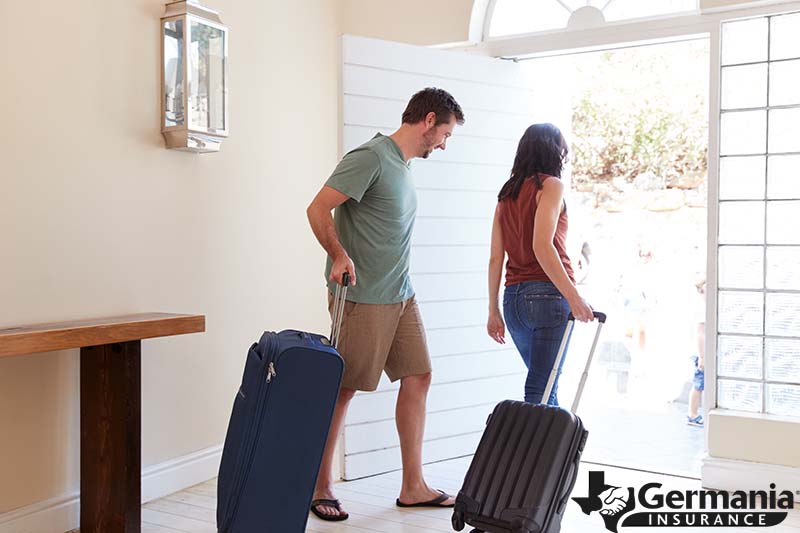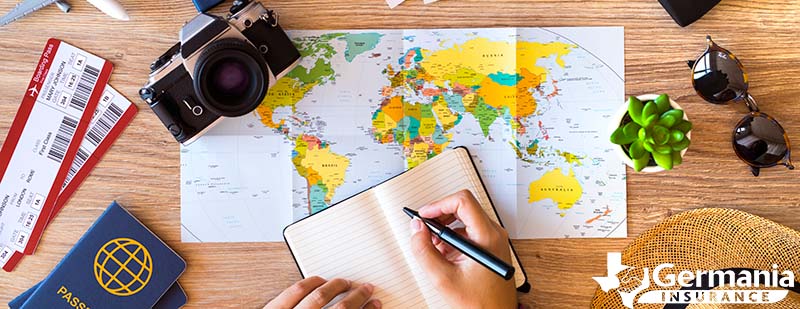Is your home safe while you're on vacation? Don't forget to follow these 10 important steps before you head out the door!

No matter how often you travel, you’re probably still going to have concerns about your home while you’re on vacation. From theft to issues with plumbing, there’s a lot that could go wrong while you’re away from home. However, there are a number of things you can do to prepare your home for vacation to avoid issues like these.
Why it’s important to prepare your home for vacation
Going on vacation is supposed to be an exciting experience. But if you’re constantly worried about what’s going on back at your house, it can dampen the mood during your trip. By preparing your home for vacation before you leave, you can reduce the risk of any issues like break-ins or damage.
10 steps you need to prepare your home for an extended vacation
Here are some steps you can take to prepare your house for vacation:
1. Secure your home so it appears occupied
If you’re planning to go on a trip, especially a long-term one, you want to make sure your home is secure. Making your house appear as if it’s occupied helps make sure that you aren’t a target for theft.
Do the following to secure your home and make it look occupied:
2. Clean out your fridge
Since you won’t be home for a while, you’ll want to clean out your fridge and remove any foods that will spoil while you’re gone. This is also a great time to wipe down all the surfaces and throw away any condiments or other items that have expired.
If you’re removing everything from your fridge, you can leave it unplugged and defrosted with the doors open so you’re not paying to run your fridge while you’re gone.
3. Prepare your home for the elements
There’s no way to know for sure what type of weather your home will experience while you’re gone. Be sure to prepare your home for the elements to reduce the risk of weather-related damage.
Have your roof inspected, and fix anything that needs repair before you leave. You should also clean your gutters and
trim back any trees or bushes. If you have patio furniture outside that is subjected to the elements or anything loose in your yard that could move with heavy winds or rain, put it inside your garage or shed to keep it secure.
4. Take care of your mail and deliveries
Whether you put your mail on pause, forward it, or ask a neighbor to pick it up, you’ll want to make sure that your mail is taken care of. Mail that piles up indicates that no one is home, which could put your house at risk for theft. The
mail could also be stolen in your absence.
Make sure you do the same thing for deliveries. If you’re expecting any deliveries in your absence, ask a neighbor to hold them for you until you return. Be sure to pause any subscription services as well.
5. Clean your home
It may seem counterintuitive to clean a home that is going to remain empty for a while, but future you will be thankful. It’s a much more pleasant experience to come home to a clean and de-cluttered house after time away.
Use this as a quick cleaning checklist:
- Empty your dishwasher and leave the door open so the water dissipates.
- Make sure there are no clothes in the washer or dryer to avoid coming home to moldy laundry.
- Wipe down your countertops and clean the stovetop to avoid attracting any bugs or rodents in your absence.
- Clean your garbage disposal by running a half-cup of vinegar and water through it to avoid coming home to a very unpleasant (and hard to get rid of) smell.
- Take out the trash before you leave, and arrange for someone to take the cans to the street for trash day.
You may even want to dust and run a vacuum before you leave just to lessen the amount of dust and debris in your home.
6. Protect your vehicle
If you’re leaving a car or other vehicle at home while you’re on vacation, you’ll want to make sure it’s secure and ready for long-term storage. Ideally, you’ll leave your car parked in a garage where it is out of the elements. If you don’t have a garage, you can get a weatherproof car cover to help keep it clean and dry.
You’ll want to ask a friend or neighbor to start and drive the car once a week. If that’s not possible, you may want to disconnect the car battery before you leave or use a battery trickle charger. This will help prevent battery drainage.
Here are some additional
tips for long-term car storage:
- If you’re going to be gone for more than 30 days, fill up your gas tank to prevent moisture from accumulating and keep the seals from drying out.
- Clean your car as water stains, bird droppings, mud, grease, or tar left for a long time can damage the paint.
- If you’re gone for more than 30 days, change the oil before you leave to avoid contaminants from old oil damaging your engine.
7. Turn off the water in your house
You're just one unexpected plumbing leak away from coming home to a flooded house. When you’re home, you’re able to act and avoid damage. However, when you’re away, a plumbing leak can really wreak havoc on your home.
Locate the main water shut-off valve and turn it off before you leave. After you turn it off, turn on your kitchen and bathroom faucets until they run dry. Then flush your toilets and turn off the water at the base of each toilet. This prevents any mold or mildew from building up inside the bowl.
There are a couple of instances when you don’t want to turn off the main water line. One is if your heating system uses hot water, and you plan to leave your heat on while you’re gone. Another is if you want your sprinkler system to turn on while you’re away.
8. Unplug most appliances
A big electrical storm can cause
power outages. Ongoing or rapid power outages can impact and damage appliances in your home, including your computer and television. Right before you leave for vacation, go around your home and unplug anything that doesn’t need to be on like toasters, cable boxes, televisions, kitchen appliances, and anything else you won’t be using.
You can pretty much unplug anything that’s not a lamp on a timer or part of your security system. This includes surge protectors as they aren’t perfect and can still put you at risk for damage. Not to mention, any turned off appliances that are still plugged in have an electrical draw that you’re still paying for even though you’re not using them.
9. Set your water heater to “vacation mode”
There is no reason to maintain a hot tank of water for a long period of time while you’re on vacation. If possible, you can turn your water heater completely off. If you’re not comfortable doing this, set it to the lowest heat level (often called “vacation mode”).
10. Set your thermostat
Adjust your thermostat so that it is closer to the temperature outside. This will help you
save money on unnecessary energy costs, but it can also help you avoid unforeseen problems with your HVAC equipment while you’re gone.
If you’re vacationing during a cold-weather season, set the thermostat to a lower temperature. For hotter seasons, increase the temperature to ensure peak efficiency.
 For more information about Germania's insurance products, request a free quote online, or find a trusted agent near you!
For more information about Germania's insurance products, request a free quote online, or find a trusted agent near you!